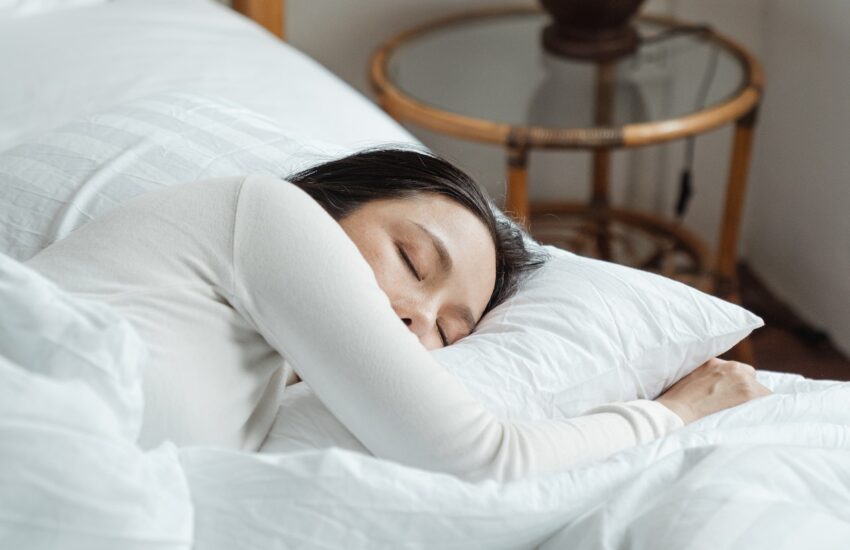Simple Techniques For Relieving Anxiety And Getting To Sleep Faster
Anxiety levels and sleep problems are things that plague Americans.
And now, in 2021, I’m seeing sleep issues and issues related to anxiousness on the rise.
Who’s to blame people for feeling like things are spinning out of control? 2020, and 2021 certainly have given us reasons to feel a little off.
That’s why I wanted to write to you about simple techniques for curbing anxiousness as well as helping manage sleep.
What I’m about to share with you are evidence-based methods for calming your brain, and your heart so that you’re able to gain a sense of control over your life. Even if things get more chaotic than they already are, you’ll find if you employ these natural strategies in your day-to-day life you’re going to simply feel better.
And hey, even if you’re not anxious, or sleep without issue, it’s definitely not going to hurt to know this information.
Now, onto the good stuff.
3 Things You Can Do to Reduce Anxiousness and Sleep Better
Getting sleep, and the overall quality of sleep, are closely tied to how anxious you are.
So what can you do to bring anxiety levels down?
Much less, do that without having to take a pill (whether natural or not)?
There are a few simple solutions that you can employ.
1 – Breathing In These Ways Helps Reduce Anxiety:
There are a number of different ways to control your breathing that are shown to help reduce anxiety.
I recently read an article that focused on 8 different ways to breathe for reducing anxiety.
Looking over them, I thought all were useful, but not all of them were practical.
So what I did was collect the ones I thought were most easily adopted and easy to accomplish.
I’ve taken the liberty to lift the directions directly from the article I read to deliver their directions to you.
Here are the 2 I thought were best:
The first is breath focus breathing.
“When deep breathing is focused and slow, it can help reduce anxiety. You can do this technique by sitting or lying down in a quiet, comfortable location. Then:
- Notice how it feels when you inhale and exhale normally. Mentally scan your body. You might feel tension in your body that you never noticed.
- Take a slow, deep breath through your nose.
- Notice your belly and upper body expanding.
- Exhale in whatever way is most comfortable for you, sighing if you wish.
- Do this for several minutes, paying attention to the rise and fall of your belly.
- Choose a word to focus on and vocalize during your exhale. Words like “safe” and “calm” can be effective.
- Imagine your inhale washing over you like a gentle wave.
- Imagine your exhale carrying negative and upsetting thoughts and energy away from you.
- When you get distracted, gently bring your attention back to your breath and your words.
Practice this technique for up to 20 minutes daily when you can.”
Another one is called Lion’s breath. This kind of breathing has been popularized by Wim Hof, one of the foremost experts in human optimization.
Here’s what the authors had to say about Lion’s breath breathing and how to replicate it.
“Lion’s breath involves exhaling forcefully. To try lion’s breath:
- Get into a kneeling position, crossing your ankles and resting your bottom on your feet. If this position isn’t comfortable, sit cross-legged.
- Bring your hands to your knees, stretching out your arms and your fingers.
- Take a breath in through your nose.
- Breathe out through your mouth, allowing yourself to vocalize “ha.”
- During exhale, open your mouth as wide as you can and stick your tongue out, stretching it down toward your chin as far as it will go.
- Focus on the middle of your forehead (third eye) or the end of your nose while exhaling.
- Relax your face as you inhale again.
- Repeat the practice up to six times, changing the cross of your ankles when you reach the halfway point.”
Controlling breathing is simple, proven, and it’s FREE!
2 – Exercise:
A few weeks ago I wrote about the merits of exercise in helping men boost their testosterone levels.
Exercise is one of the best medicines you could ever include in your life, for various reasons.
But certainly, exercise can help you manage anxiety levels and help you get to sleep faster.
Just how effective is exercise at doing what I claim it does?
Well, researchers at Johns Hopkins University, one of the most highly regarded hospitals in the world are convinced it’s one of the best solutions for helping people who struggle with sleep.
Charlene Gamaldo, M.D. a research director at Johns Hopkins said this, “Based on available studies, we have solid evidence that exercise does, in fact, help you fall asleep more quickly and improves sleep quality.”
She did qualify this statement to say that their research didn’t help identify when the best time to exercise was.
She went on to say, “there’s still some debate as to what time of day you should exercise. I encourage people to listen to their bodies to see how well they sleep in response to when they work out,” she adds.
The researchers admitted they weren’t sure what exactly about exercise contributed to the benefit of falling asleep, but they assume it may have something to do with how exercise releases endorphins, which are our “feel good” neurotransmitters.
That, and exercise can help raise the body’s core temperature for 90 minutes or so and then cause it to fall; which the body may interpret as a sign to fall asleep.
And when it comes to exercise and how it affects anxiety levels, there’s more good news.
Harvard University recently published an article that indicated exercise is one of the best treatments for anxiety.
Dr. John Ratey of Harvard said that exercise helps with anxiety in the following ways:
- “Engaging in exercise diverts you from the very thing you are anxious about.
- Moving your body decreases muscle tension, lowering the body’s contribution to feeling anxious.
- Getting your heart rate up changes brain chemistry, increasing the availability of important anti-anxiety neurochemicals, including serotonin, gamma aminobutyric acid (GABA), brain-derived neurotrophic factor (BDNF), and endocannabinoids.
- Exercise activates frontal regions of the brain responsible for executive function, which helps control the amygdala, our reacting system to real or imagined threats to our survival.
- Exercising regularly builds up resources that bolster resilience against stormy emotions.”
There’s no way to argue about this, exercise is a must for anyone who wants to help maintain good health. And if you’re struggling to maintain anxiety levels or get to sleep, it’s essential.
3 – Magnesium:
As I’ve written about dozens of times, magnesium is one of the most underappreciated nutrients you could ever hope to have in healthy levels.
And, as you might suspect, it’s also one of the most critical nutrients for maintaining healthy sleep patterns as well as helping to keep your mood balanced and calm.
Evidence suggests that magnesium may influence an area in your brain called the hypothalamus, which helps regulate the pituitary and adrenal glands. These glands are responsible for your response to stress.
By having a calming effect and regulating neurotransmitters it can take you from a place where you’re feeling high-strung for a bit and bring you back down to Earth.
I should note that magnesium is great for temporary or occasional anxiety as it has a powerful and nearly instant effect. Just a little bit applied topically and/or taken internally can have dramatic effects.
And when it comes to sleep, magnesium helps you there by acting as a muscle-relaxing agent, and also helping to keep your neurotransmitters balanced which means your brain isn’t racing when you’re going to sleep.



